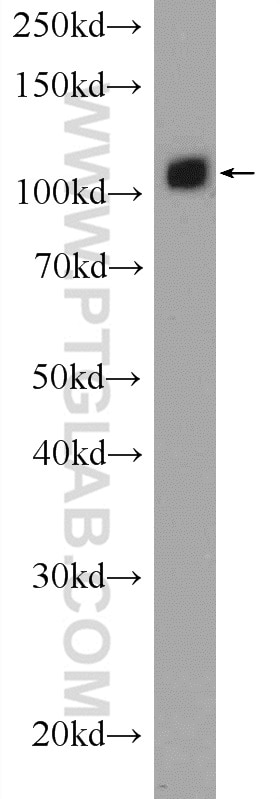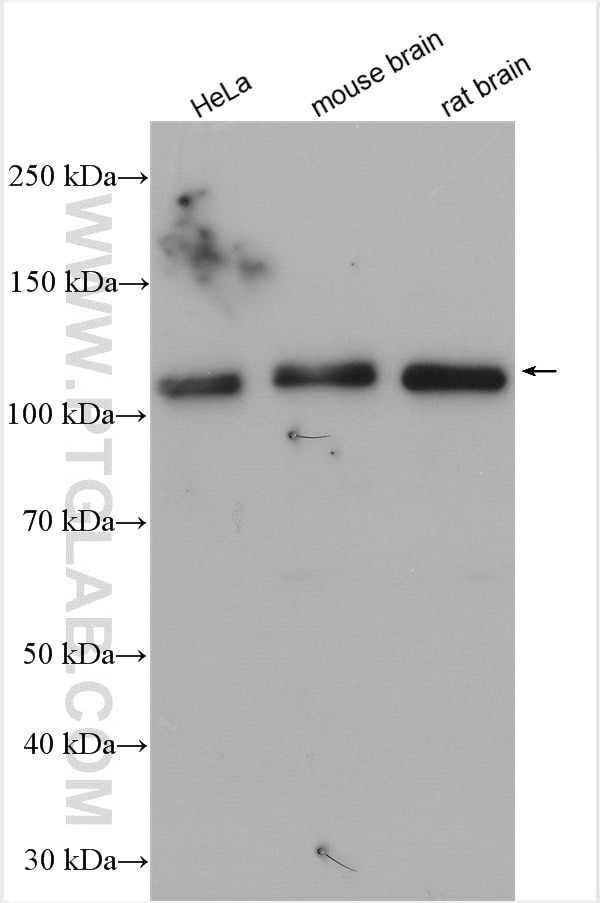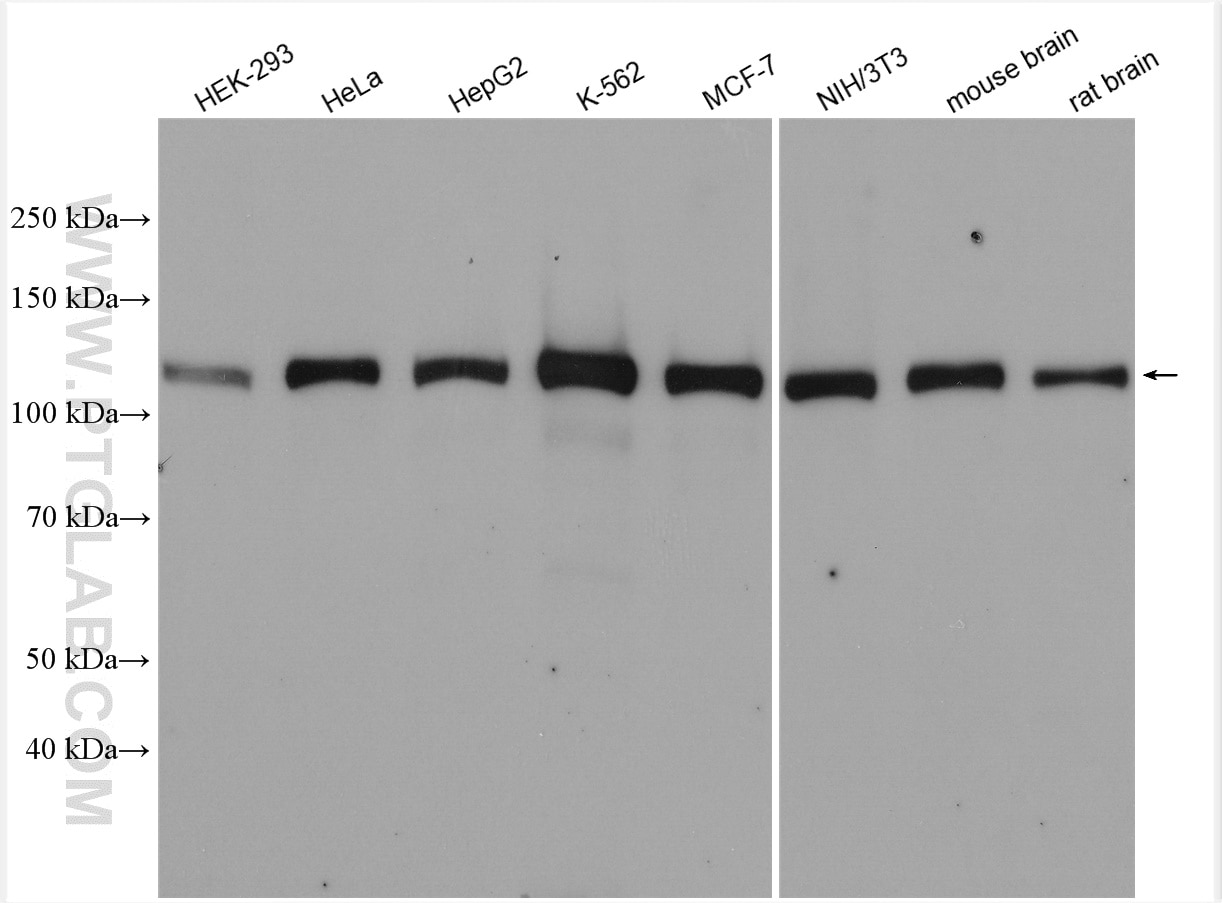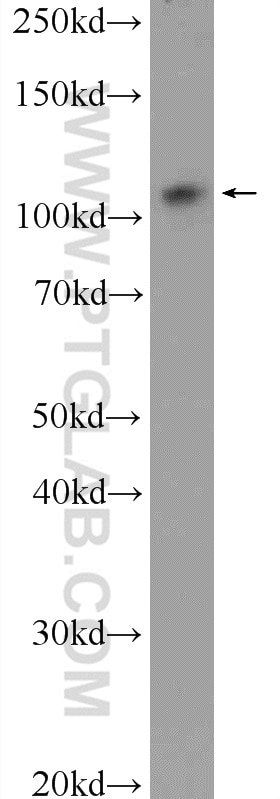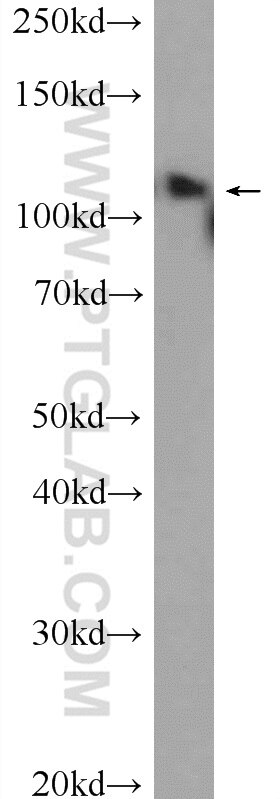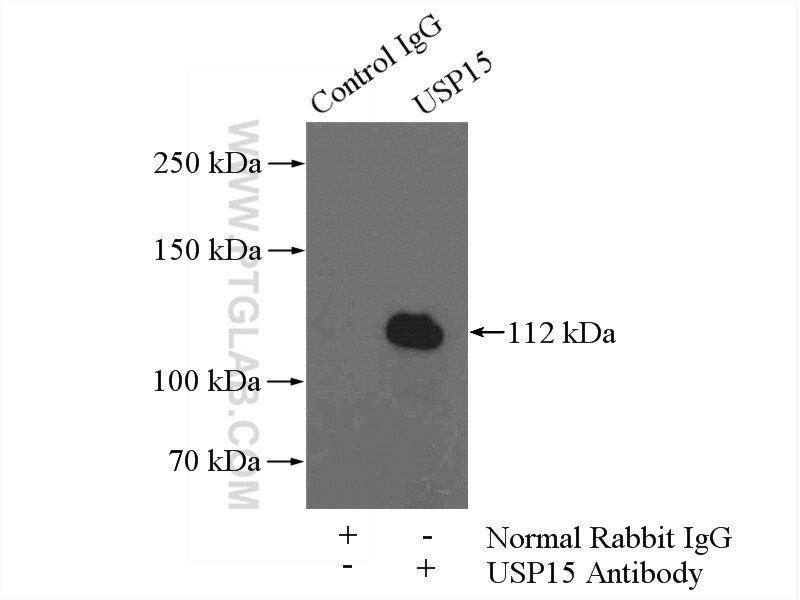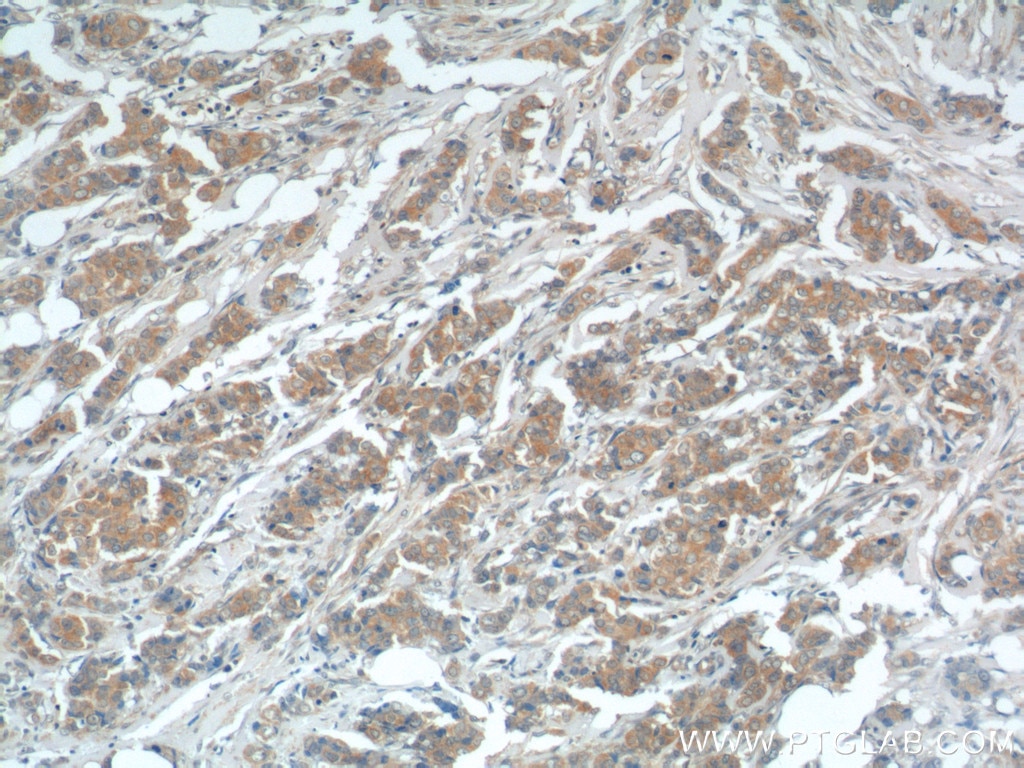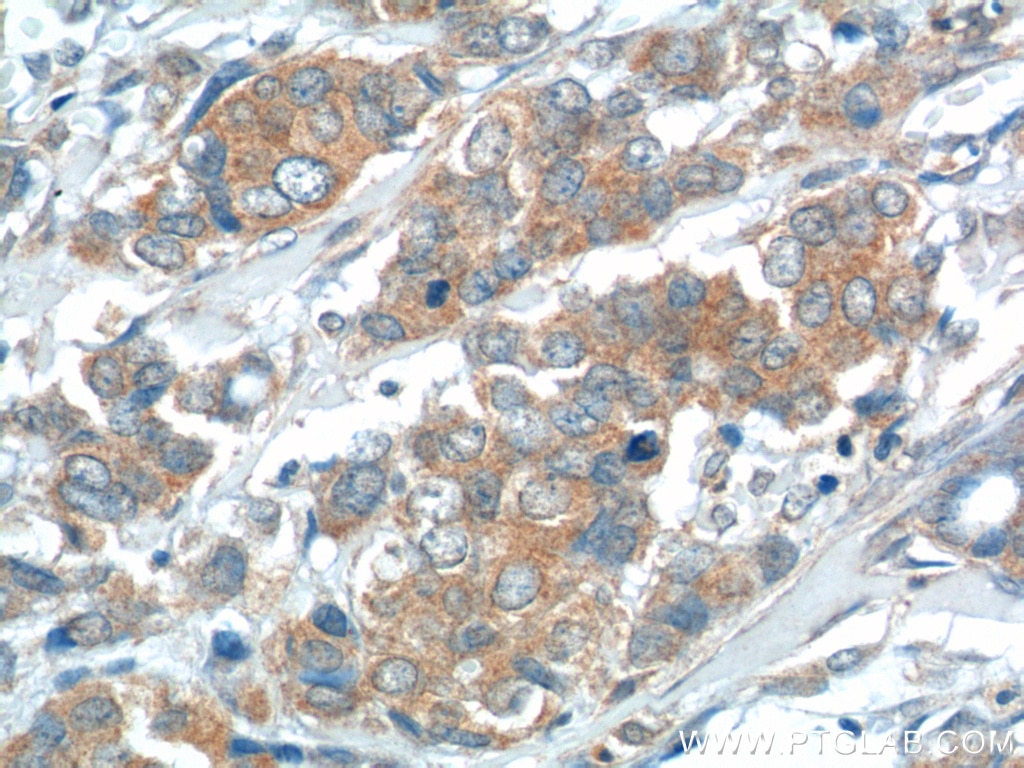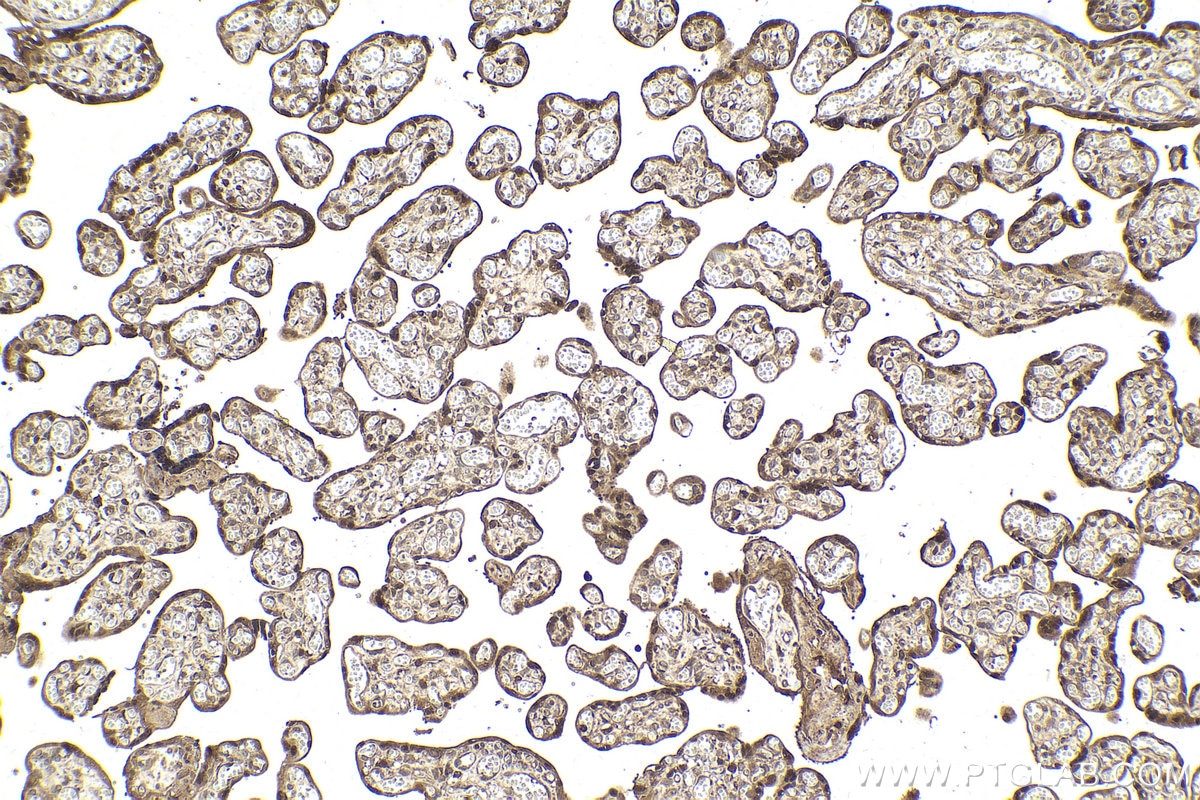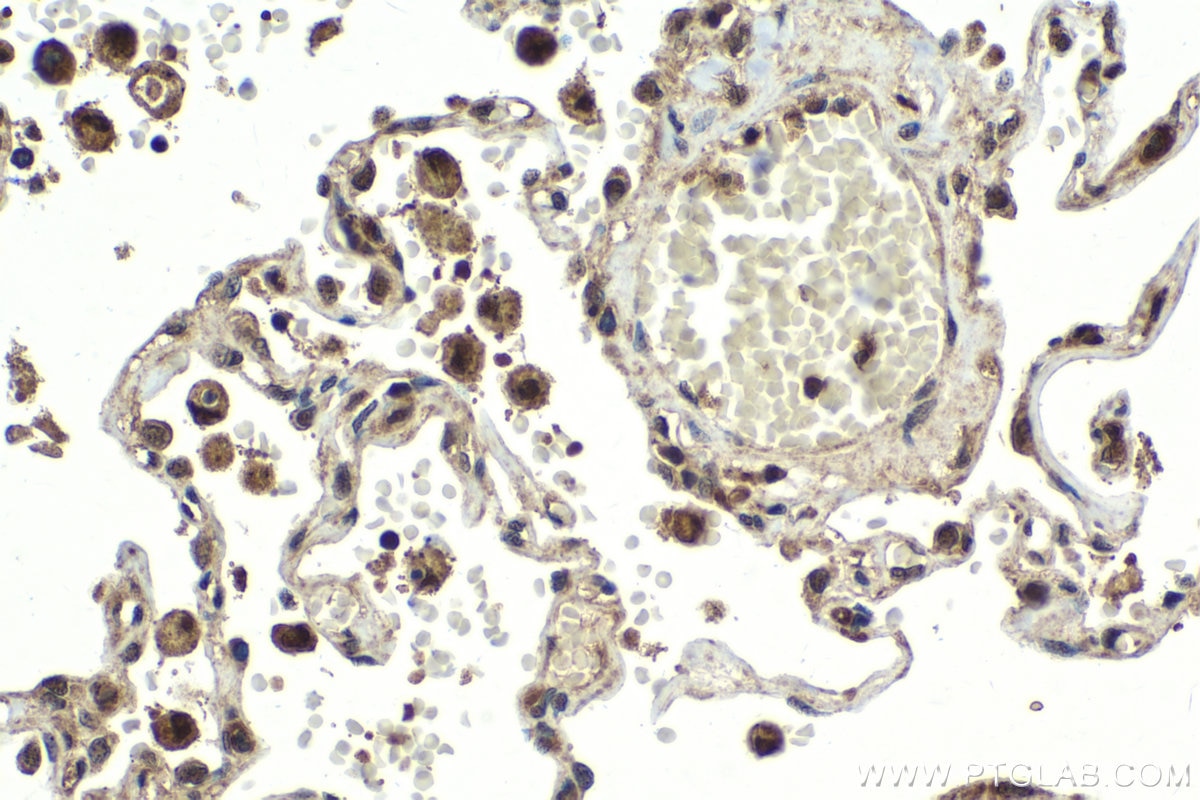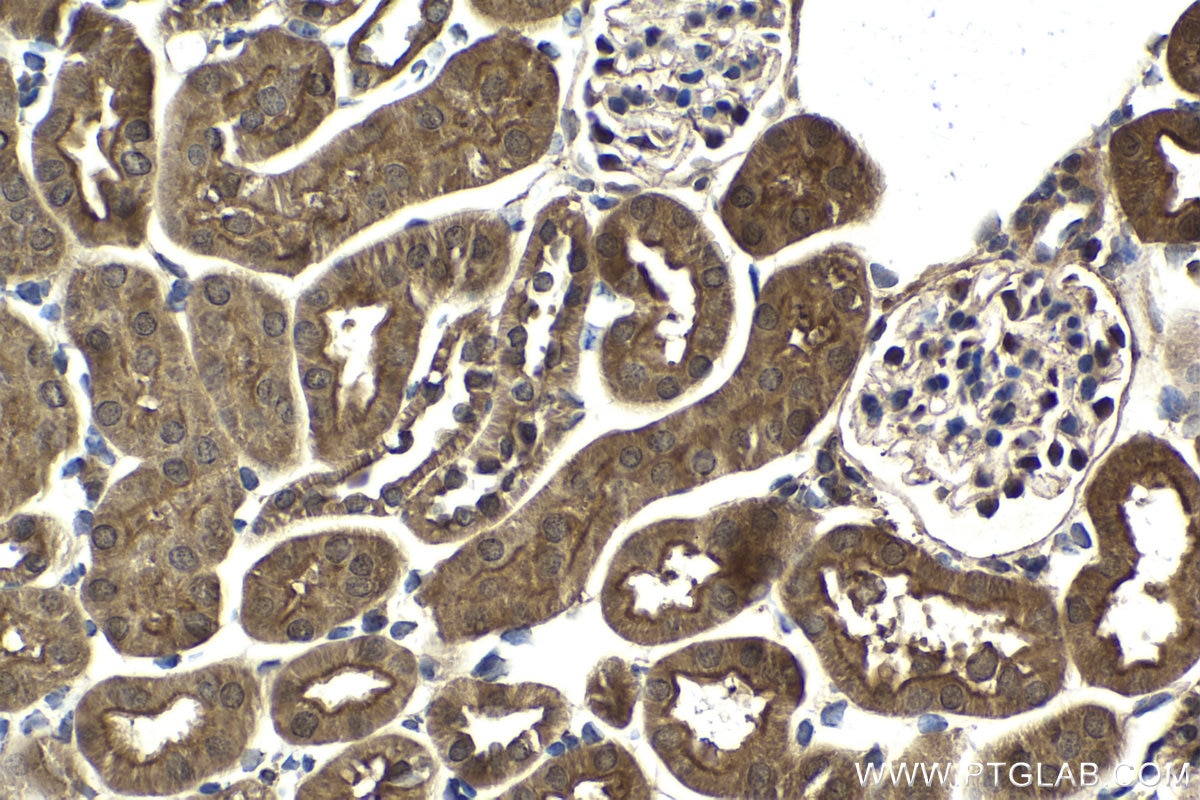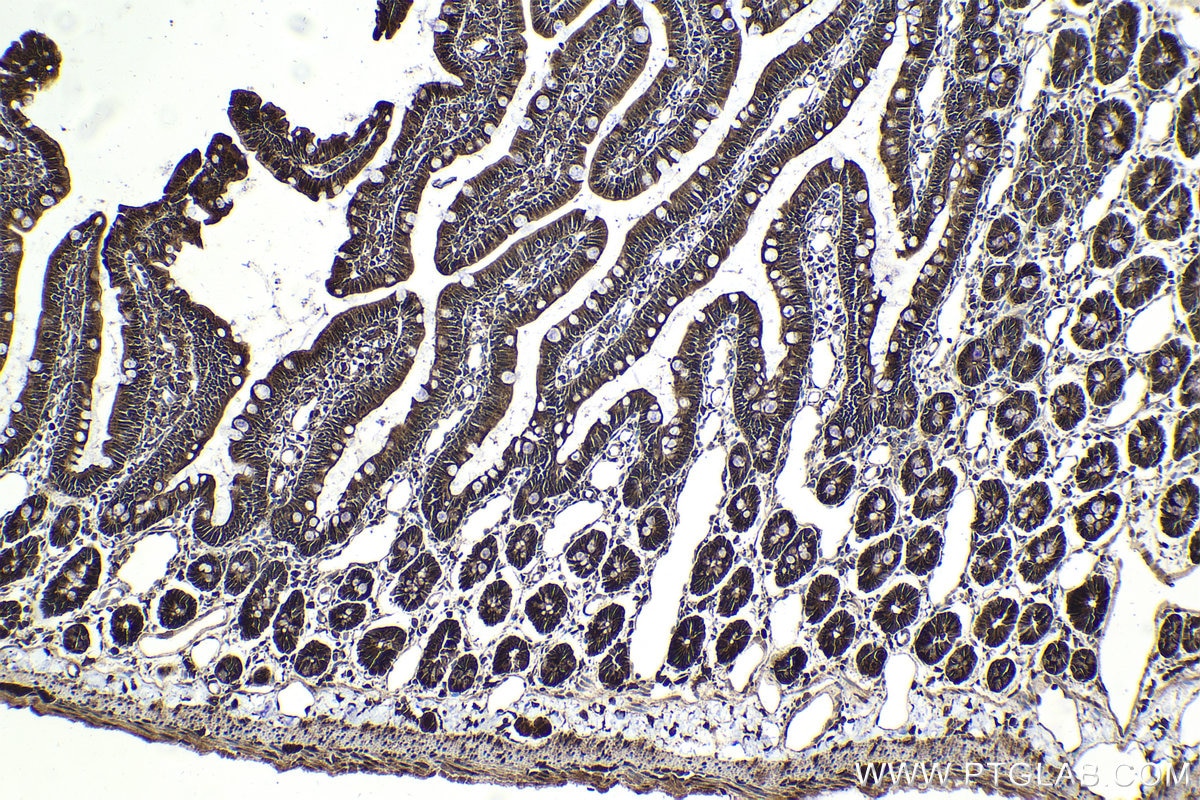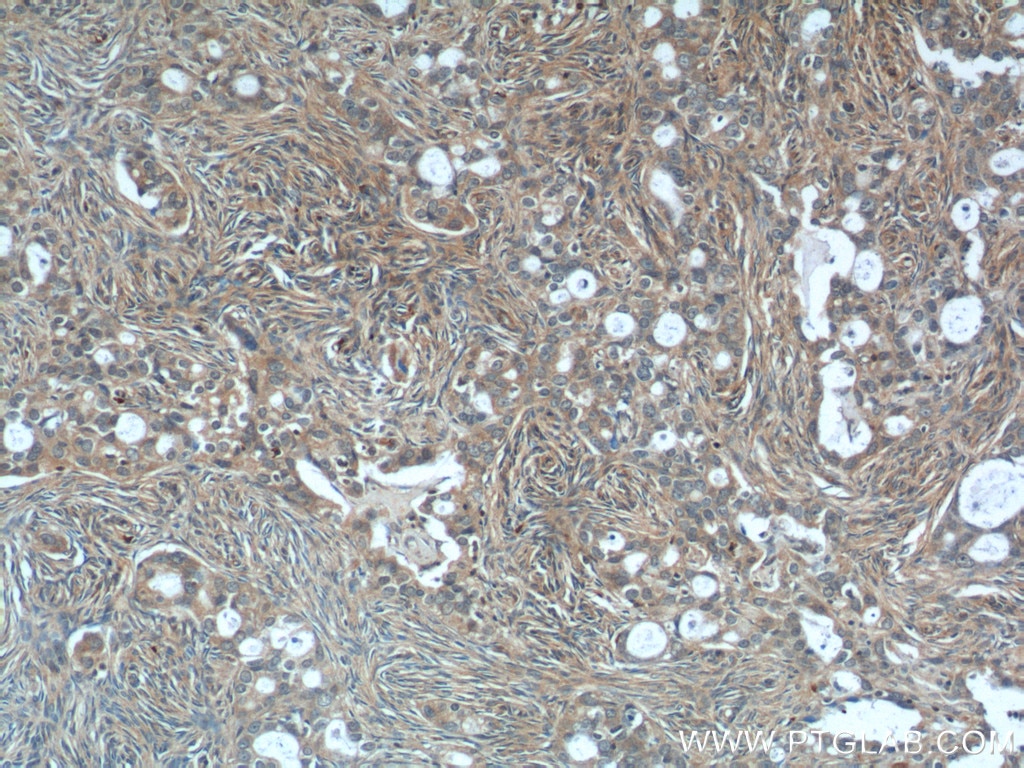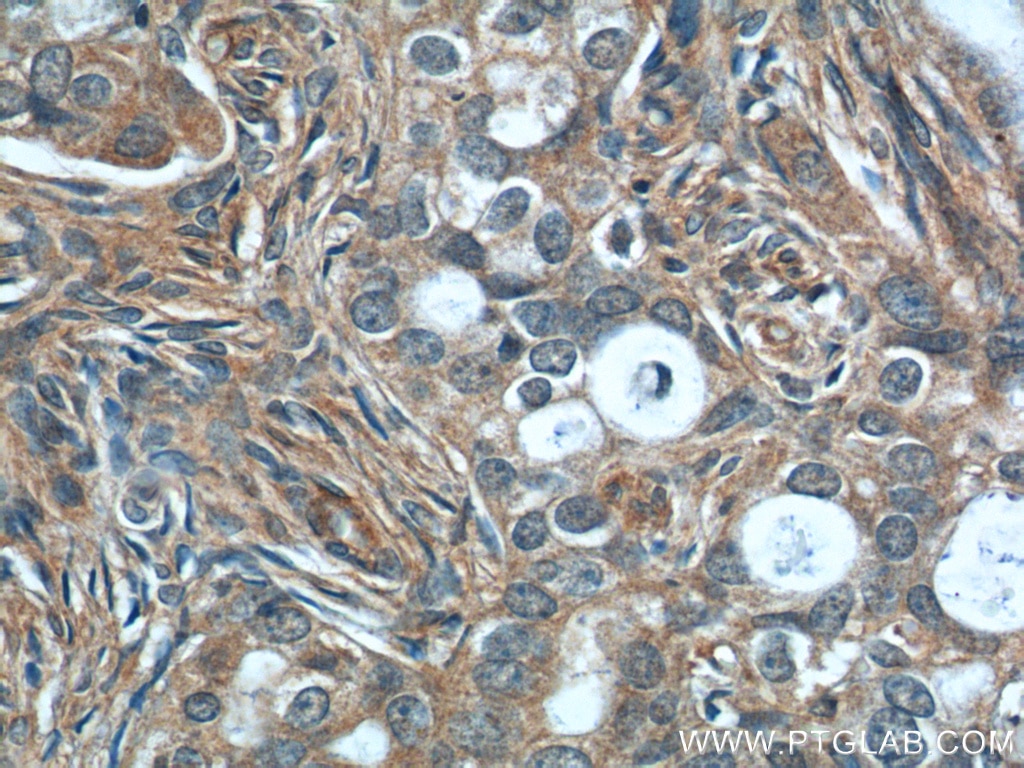Validation Data Gallery
Tested Applications
| Positive WB detected in | HEK-293 cells, HeLa cells, mouse brain tissue, HepG2 cells, K-562 cells, MCF-7 cells, NIH/3T3 cells, rat brain tissue |
| Positive IP detected in | mouse brain tissue |
| Positive IHC detected in | human placenta tissue, human breast cancer tissue, human lung tissue, human ovary tumor tissue, mouse kidney tissue, rat small intestine tissue Note: suggested antigen retrieval with TE buffer pH 9.0; (*) Alternatively, antigen retrieval may be performed with citrate buffer pH 6.0 |
Recommended dilution
| Application | Dilution |
|---|---|
| Western Blot (WB) | WB : 1:2000-1:12000 |
| Immunoprecipitation (IP) | IP : 0.5-4.0 ug for 1.0-3.0 mg of total protein lysate |
| Immunohistochemistry (IHC) | IHC : 1:250-1:1000 |
| It is recommended that this reagent should be titrated in each testing system to obtain optimal results. | |
| Sample-dependent, Check data in validation data gallery. | |
Published Applications
| KD/KO | See 11 publications below |
| WB | See 18 publications below |
| IHC | See 2 publications below |
| IF | See 5 publications below |
| IP | See 2 publications below |
| CoIP | See 2 publications below |
Product Information
14354-1-AP targets USP15 in WB, IHC, IF, IP, CoIP, ELISA applications and shows reactivity with human, mouse, rat samples.
| Tested Reactivity | human, mouse, rat |
| Cited Reactivity | human, mouse, rat, bovine |
| Host / Isotype | Rabbit / IgG |
| Class | Polyclonal |
| Type | Antibody |
| Immunogen | USP15 fusion protein Ag5703 相同性解析による交差性が予測される生物種 |
| Full Name | ubiquitin specific peptidase 15 |
| Calculated molecular weight | 112 kDa |
| Observed molecular weight | 112 kDa |
| GenBank accession number | BC020688 |
| Gene Symbol | USP15 |
| Gene ID (NCBI) | 9958 |
| RRID | AB_2257148 |
| Conjugate | Unconjugated |
| Form | Liquid |
| Purification Method | Antigen affinity purification |
| UNIPROT ID | Q9Y4E8 |
| Storage Buffer | PBS with 0.02% sodium azide and 50% glycerol , pH 7.3 |
| Storage Conditions | Store at -20°C. Stable for one year after shipment. Aliquoting is unnecessary for -20oC storage. |
Background Information
Ubiquitin is a highly conserved eukaryotic protein that is synthesized as a fusion protein precursor, either to itself or to one of two ribosomal proteins. USP15, is also named as KIAA0529,Unph-2, Unph4, encoding a human ubiquitin-specific protease (USP). The USP15 protein contains the highly conserved Cys and His boxes present in all members of he UBP family of deubiquitinating enzymes(PMID:10444327).It has 3 isoforms produced by alternative splicing.
Protocols
| Product Specific Protocols | |
|---|---|
| WB protocol for USP15 antibody 14354-1-AP | Download protocol |
| IHC protocol for USP15 antibody 14354-1-AP | Download protocol |
| IP protocol for USP15 antibody 14354-1-AP | Download protocol |
| Standard Protocols | |
|---|---|
| Click here to view our Standard Protocols |
Publications
| Species | Application | Title |
|---|---|---|
Nat Immunol USP15 stabilizes MDM2 to mediate cancer-cell survival and inhibit antitumor T cell responses.
| ||
Nat Commun ERK and USP5 govern PD-1 homeostasis via deubiquitination to modulate tumor immunotherapy
| ||
Mol Cell RAPIDASH: Tag-free enrichment of ribosome-associated proteins reveals composition dynamics in embryonic tissue, cancer cells, and macrophages | ||
Autophagy USP33 deubiquitinates PRKN/parkin and antagonizes its role in mitophagy.
| ||
Autophagy LncRNA 2810403D21Rik/Mirf promotes ischemic myocardial injury by regulating autophagy through targeting Mir26a. | ||
Leukemia The deubiquitinase USP15 modulates cellular redox and is a therapeutic target in acute myeloid leukemia |
